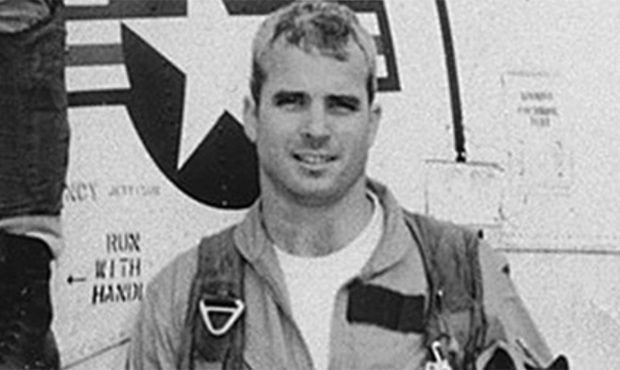McCain’s Legacy
September 26, 2018
Last month, Arizona Senator John McCain was buried. Whatever your political standing is, McCain was an American hero. He served with distinction in the Vietnam War. He was captured and held in a hellhole of a North Vietnamese prison camp, where he endured five long years of gruesome torture that left him physically disfigured and disabled for the rest of his life. When offered an early release designed to embarrass his father, who was a four-star admiral in the Navy, he declined and endured two more years of imprisonment.
He certainly wasn’t a man without flaws, and many had good faith differences with his politics. But John McCain uniquely embodied certain uniquely American characteristics that are becoming increasingly rare today. One of those characteristics is a profound sense of gratitude. McCain reflected on various events in his life—he crashed airplanes, he was a conduct case at the Naval Academy, he was nearly killed in a terrible shipboard fire, he was shot down and tortured for years, and he was attacked unfairly in the press when he ran for President against Barack Obama. After all of this, he said “I do not know anyone alive — I’ve never heard of anyone — who is as lucky as I am.” Notwithstanding a difficult and painful life, McCain consistently pushed grievance aside and expressed gratitude for his life, for those around him, and for our country. That outlook led him to stand up for the things that make our country great when he felt they were under attack.
Gratitude is a focus on things that go right in life. It’s no secret that feelings of gratitude are highly correlated with high levels of happiness. And when we express our gratitude for others to the ones we are grateful for, we become even happier.
Why is it that we so love that uniquely American holiday of Thanksgiving? It might be the great food, or the football, or the time spent with family. But it could also be that we have a national holiday dedicated to gratitude and to reflecting upon our good fortune—that we focus, for one day, on all that has gone right in our individual and collective lives and that we express our gratitude to each other and to our Creator. Is there a way that we can bring some measure of this to the other 364 days of our year?
So, where to begin? Yale professor Laurie Santos teaches a course called “Psychology and the Good Life,” which has become the most popular course in Yale history. Santos has some helpful suggestions on practicing our gratitude and becoming a happier person. First, we should pay attention. We should notice the good—a good meal, a kind deed from a stranger, or a moment of peace. This helps us block “feelings of victimhood.” A big part of her focus is also that it’s possible to be happy without every material need being met. Second, we should consider taking an inventory of these good things, maybe by writing them down, as my English teacher has us do every day (thanks Ms. Gallicchio!). This process of “gratitude journaling” helps us understand and appreciate the sources of our gifts. Finally, we should express our gratitude, to our parents, our siblings, our friends, our coaches, and our teachers. Maybe say a prayer. Did someone make a difference for you? Helped you? Pushed you or corrected you? Tell them.
No one wants to experience the hardships and hazards that John McCain faced. But if we learn to feel and express some measure of gratitude like he did, we may be happier.





















![Movie poster for '[Rec]" (2007).](https://www.lionnewspaper.com/wp-content/uploads/2023/04/rec-640x900.jpg)



